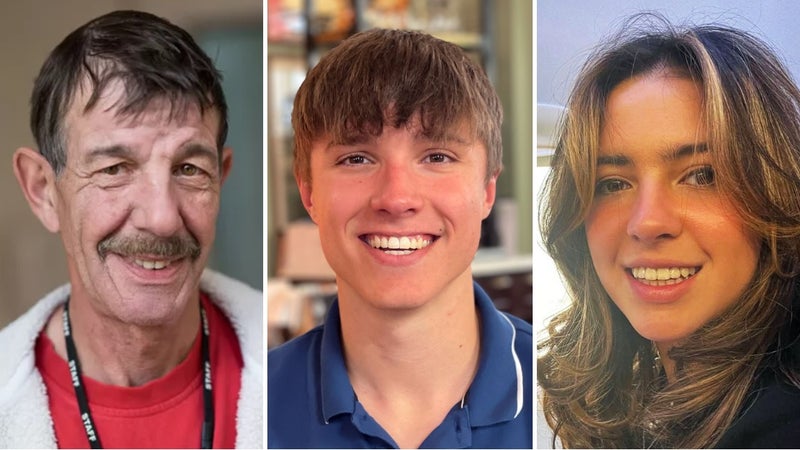Nottingham attacks: victims’ families call for killer’s doctors to be named
Nottingham attacks: victims’ families call for killer’s doctors to be named
Share:
Families say they want accountability for ‘bad decision-making’ relating to Valdo Calocane. The families of the Nottingham attacks victims have called for individual doctors responsible for Valdo Calocane’s treatment to be named and held accountable. At a press conference on Wednesday, after the publication of a report detailing Calocane’s mental health treatment before his killing spree in June 2023, the families of Grace O’Malley-Kumar, Barnaby Webber and Ian Coates said they wanted accountability for “poor leadership and bad decision-making”.
Sanjoy Kumar, Grace’s father and a GP, said the report had “failed to name individuals responsible for the failure to treat Calocane appropriately”. “We will be asking the secretary of state for health to order the trust to hold individual doctors responsible as they knew Calocane was an evil, violent man, a known risk to the public who did not take his medication,” he said. “He was sectioned four times. The psychiatrist failed to change his treatment four times. They failed to consider public safety in Nottingham.
“A system is made out of individuals. If individuals are not held to account, systems will not change in our country.”. Grace’s mother, Sinead O’Malley, who is a consultant anaesthetist, said: “If any of those individuals thought that Valdo Calocane was going to go out and share student accommodation with their child, I suspect their choices may have been changed. Accountability on an individual level is essential.”.
Calocane, who was diagnosed with paranoid schizophrenia, was sentenced to an indefinite hospital order after killing three people, and attempting to kill three others, in a spate of attacks in Nottingham on 13 June 2023. The families said they were due to meet government ministers next week to discuss a public inquiry into the attacks and Calocane’s treatment, previously promised by Keir Starmer before the general election last year.
They said talks would include deciding the format and scope of the inquiry, as well as the identity of the chair. Emma Webber, Barnaby’s mother, said she wanted to ensure the inquiry was statutory and “has teeth”. “All of the agencies, organisations, institutions and, vitally, individuals must then and will be compelled to attend, give evidence and tell the truth,” she said. “It’s not a witch-hunt – we want accountability, we’re not vengeful. But because people are not being held to account when they don’t do their jobs properly, change isn’t happening. Where’s the incentive?”.
She added: “The scale of all of this is an unimaginable and an epic level. The public deserve to know the truth. It must be addressed and it must be dealt with properly.”. James Coates, Ian Coates’ son, who lives in Nottingham, said he had struggled accessing mental health treatment from the same service responsible for discharging Calocane nine months before the attacks. “There are still individuals out there who are not doing risk assessments, who are not completing the job properly, taking shortcuts,” he said. “There’s a system that failed but they won’t pick out the individuals, the ones that have signed on the dotted line. I just can’t have any faith in the trust.”.
The independent report said Calocane was not forced to have long-lasting anti-psychotic medication when hospitalised because he did not like needles, although he was known not to take medication when released. The review also found that between 2019 and 2023 there were 15 other incidents of “extremely serious” violence, including three fatalities, perpetrated by patients of Nottinghamshire healthcare NHS foundation trust, or people recently discharged.
The families said they believed Calocane should face a harsher sentence, with solicitor Neil Hudgell, acting on their behalf, saying Calocane “was not treatment resistant, he resisted treatment”. The chief executive of Nottinghamshire healthcare NHS foundation trust, Ifti Majid, said: “We apologise unreservedly for the opportunities we missed in the care of Valdo Calocane. We are making clear progress with a trust-wide plan, which is already delivering key improvements in areas such as risk assessment and discharge processes.”.






















